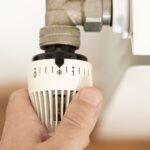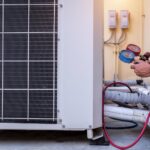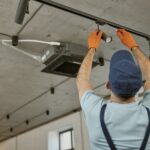When your microwave suddenly refuses to heat your meal during a busy day, it can be more than just an inconvenience. This guide dives into the common heating issues you might encounter, offering practical solutions to keep your microwave functioning perfectly, ensuring your kitchen routines remain uninterrupted.
- Learn how to diagnose whether your microwave’s heating issue stems from the appliance itself or your usage habits.
- Understanding key components like the magnetron and capacitor can be your first step to effective troubleshooting.
- Explore simple DIY fixes for uneven heating or sparks, and discover when it’s best to consult a professional.
Identifying and resolving microwave heating problems not only saves you time and money but also enhances the longevity of your appliance. With these tips, you’ll gain the confidence to tackle issues head-on, and contribute to a thriving community of DIY enthusiasts sharing solutions and experiences.
Microwave Heating Problems Guide: Diagnosing Common Issues
Microwave heating issues can often throw a wrench in your daily meal preparations. Understanding common problems such as uneven heating or complete failure to heat up is essential in diagnosing the underlying issue. By recognizing these symptoms early, you can determine whether it’s an internal malfunction or simply a matter of adjusting your cooking practices.
Start by observing if your microwave is producing strange noises or smells during operation. These signs might indicate problems with crucial components like the magnetron or the power supply. Moreover, an undercooked or cold meal despite following usual heating times could also point towards possible internal defects.
Make sure to also check whether the microwave door is closing properly, as a faulty door latch can interrupt the cooking cycle. Lastly, consider your microwave’s placement and ventilation, since inadequate space and airflow can result in overheating and inefficient performance.
Understanding Microwave Components
To effectively troubleshoot microwave heating issues, being familiar with the key components of your appliance is crucial. The magnetron is at the heart of the microwave function, converting electrical energy into microwave radiation that cooks your food. If your food isn’t heating as expected, the magnetron might be burnt out or malfunctioning.
The capacitor plays a vital role in supplying power to the magnetron. A failed capacitor could lead to a microwave that doesn’t heat at all. Checking its condition could save you a trip to the repair shop.
The thermal fuse is a safety device meant to prevent overheating. If your microwave stops functioning abruptly, it might have blown due to overheating or a short circuit. Recognizing a blown thermal fuse will guide you in restoring your appliance to working order, often with a simple replacement.
Understanding these core components will not only aid you in diagnosing common heating problems but also empower you to discuss potential issues intelligently with a repair technician if professional assistance becomes necessary.
Microwave Heating Problems Guide: Simple Fixes and Professional Help
Microwave ovens are incredibly convenient appliances, yet they can occasionally encounter issues. Understanding common problems, especially those related to heating, is vital for efficient troubleshooting. In this guide, we’ll explore some practical solutions you can try on your own, along with advice on when professional help is necessary.
One frequent issue is uneven heating of food. This may be due to a malfunctioning turntable or an improper power setting. Ensure that the turntable is moving correctly during operation. If your microwave has a power adjustment feature, verify that it’s set to the right level for the food you are trying to heat.
If you notice sparks inside the microwave, it might be caused by metallic objects accidentally left inside, such as a forgotten spoon in a bowl or a food item wrapped in foil. Remove any metal items immediately. However, if sparks persist, it could be a sign of a more serious issue with the waveguide cover or diode. In such cases, it’s crucial to consider professional repair services.
Another common problem is when the microwave does not heat at all. While this could be due to a faulty door switch or power supply issue, it is advisable to contact a professional for proper diagnosis and resolution. Electrical components like the magnetron should only be handled by trained technicians to ensure safety and prevent further damage.
Remember, safety is paramount when dealing with electrical appliances. Always unplug your microwave before attempting any DIY repairs. If you’re unsure about performing a fix, or if the appliance shows no improvement, reaching out to a qualified technician should be your next step. This not only ensures safety but also helps maintain the longevity of your microwave oven.
Have you dealt with microwave issues before? Share your troubleshooting experiences with others to foster a community of informed DIY enthusiasts.
Frequently Asked Questions about Microwave Heating Problems
Why is my microwave not heating food properly?
If your microwave isn’t heating food correctly, check if the magnetron is functioning and ensure the settings are correct.
What causes sparks inside the microwave?
Sparks can occur due to metallic objects inside or if the internal components, like the waveguide, are damaged.
Is it safe to attempt microwave repairs on my own?
Simple issues, like cleaning or adjusting settings, can be safe, but more complex repairs should be handled by a professional.
How can I test if the magnetron is working?
Testing a magnetron can be dangerous; consult a professional for safe testing and repairs.
What maintenance can I perform to prevent heating issues?
Regularly clean the microwave and avoid using metal containers to prevent potential damage.
When should I replace my microwave?
Consider replacement if repairs are frequent, expensive, or if the microwave is over ten years old.





